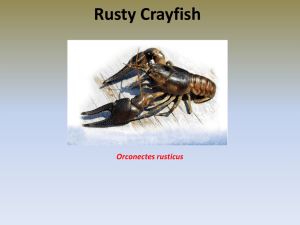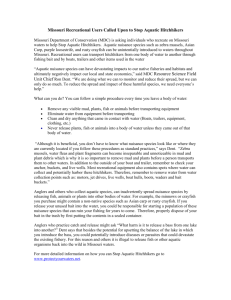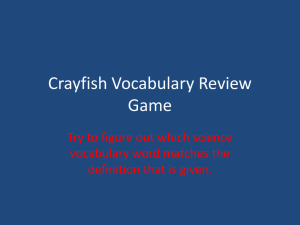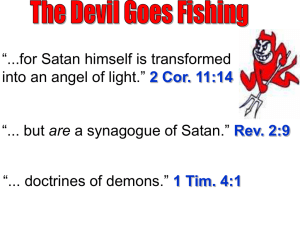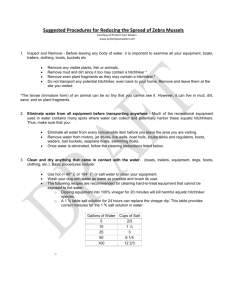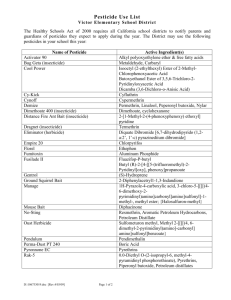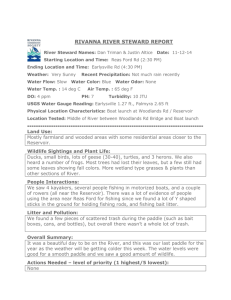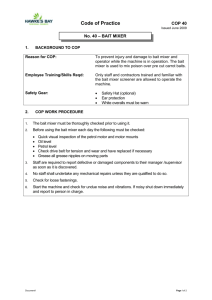Properly Dispose of Fishing Bait - Protect Your Waters and Stop
advertisement
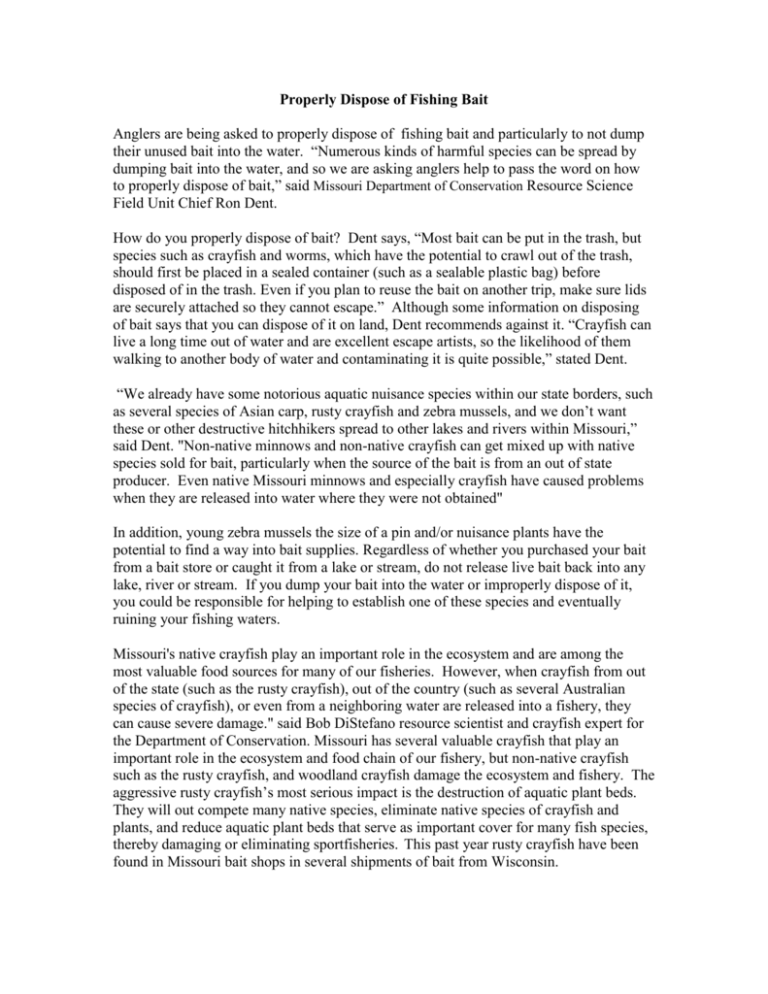
Properly Dispose of Fishing Bait Anglers are being asked to properly dispose of fishing bait and particularly to not dump their unused bait into the water. “Numerous kinds of harmful species can be spread by dumping bait into the water, and so we are asking anglers help to pass the word on how to properly dispose of bait,” said Missouri Department of Conservation Resource Science Field Unit Chief Ron Dent. How do you properly dispose of bait? Dent says, “Most bait can be put in the trash, but species such as crayfish and worms, which have the potential to crawl out of the trash, should first be placed in a sealed container (such as a sealable plastic bag) before disposed of in the trash. Even if you plan to reuse the bait on another trip, make sure lids are securely attached so they cannot escape.” Although some information on disposing of bait says that you can dispose of it on land, Dent recommends against it. “Crayfish can live a long time out of water and are excellent escape artists, so the likelihood of them walking to another body of water and contaminating it is quite possible,” stated Dent. “We already have some notorious aquatic nuisance species within our state borders, such as several species of Asian carp, rusty crayfish and zebra mussels, and we don’t want these or other destructive hitchhikers spread to other lakes and rivers within Missouri,” said Dent. "Non-native minnows and non-native crayfish can get mixed up with native species sold for bait, particularly when the source of the bait is from an out of state producer. Even native Missouri minnows and especially crayfish have caused problems when they are released into water where they were not obtained" In addition, young zebra mussels the size of a pin and/or nuisance plants have the potential to find a way into bait supplies. Regardless of whether you purchased your bait from a bait store or caught it from a lake or stream, do not release live bait back into any lake, river or stream. If you dump your bait into the water or improperly dispose of it, you could be responsible for helping to establish one of these species and eventually ruining your fishing waters. Missouri's native crayfish play an important role in the ecosystem and are among the most valuable food sources for many of our fisheries. However, when crayfish from out of the state (such as the rusty crayfish), out of the country (such as several Australian species of crayfish), or even from a neighboring water are released into a fishery, they can cause severe damage." said Bob DiStefano resource scientist and crayfish expert for the Department of Conservation. Missouri has several valuable crayfish that play an important role in the ecosystem and food chain of our fishery, but non-native crayfish such as the rusty crayfish, and woodland crayfish damage the ecosystem and fishery. The aggressive rusty crayfish’s most serious impact is the destruction of aquatic plant beds. They will out compete many native species, eliminate native species of crayfish and plants, and reduce aquatic plant beds that serve as important cover for many fish species, thereby damaging or eliminating sportfisheries. This past year rusty crayfish have been found in Missouri bait shops in several shipments of bait from Wisconsin. Asian carp have been spotted in minnow shipments. Big head and silver carp are types of Asian carp that are an extreme nuisance. They grow to over 50 pounds, compete with the native fishery for food, and their jumping behavior when they hear noise or feel vibrations can result in harm to boaters. They were unheard of in Missouri ten years ago, but are now found in the Missouri and Mississippi rivers and their backwaters and tributary streams. Once established, they are almost impossible to eradicate. The only defense is prevention. “Rusty crayfish and Asian carp are just two of the examples of harmful hitchhikers that can be dispersed through bait. If you value your fishing waters, don’t ever dump your bait contents into the water,” states Dent. Don’t Dump Bait stickers are available at MDC offices and from bait shops throughout Missouri. You can put the sticker on your bait bucket as a reminder and hand them out to friends as a way to pass the word that we need to protect our waters. To learn more ways to Stop Aquatic Hitchhikers go to www.protectyourwaters.net.
